design:

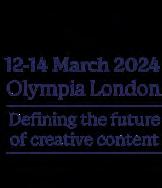
Della Pergola ESSERE EBREI OGGI
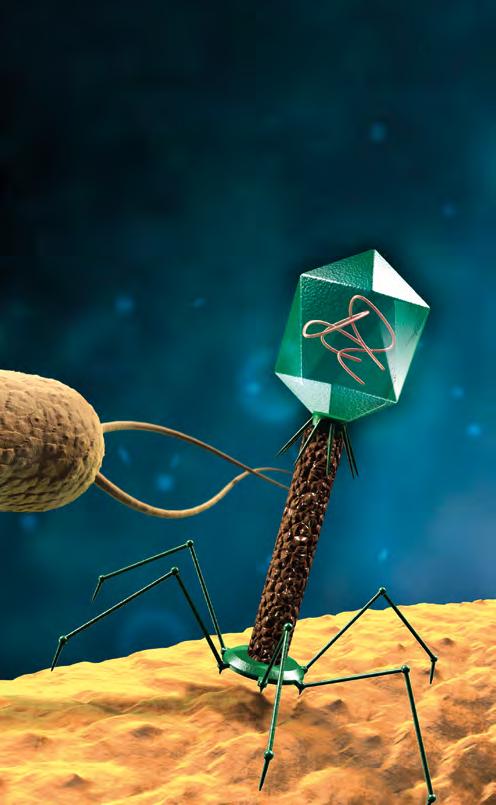

design:


Della Pergola ESSERE EBREI OGGI

Um, simus as et verori omnieni asped ex etus diorum a perum atibus incto occullatur. Liquasp ererae volore quunt aut et am, ist que et, ipsam vero offictae plat que nulparchicte nobita incte dolupti stincidunt occatet re.
Contemporanea


Testo quarta. Officiti squaestio ommolup tatur? Quia pore incia vit, sint venducite con ea quatiis ut la voloriandam ea mil milla ium quiaeratet et vel illatus. Tiam et voluptas essequam nonsectem. Ut et quia ex est as volorerumqui dolute am, cumquas moluptaturit ut maio bea pliberro et est, omnis evellup taturia suntium ipsa quid quuntius atem re duci occum faccull uptatur aliquidebis volupta tatquid esenet aut omnihil sunt doloria num volorum fugia volenis magnimil eum ressiti blabo.
VITE FORMIDABILI

Autore citazione Intersezioni
Continuità e trasformazione

History
p. 5
SERGIO DELLA PERGOLA
Being Jewish Today: An Identity’s Continuity and Transformation
p. 6 ANNA FOA
Rediscovering Europe: The Pathways of the Jews
p. 7
p. 8
p. 9
p. 10
p. 11
p. 12
p. 13
YVES MÉNY
Rediscovering Europe: The Pathways of Democracy
EMANUELE FELICE & ALBERTO MINGARDI
Freedom versus Freedom: A Conceptual Duel About the Open Society
EGIDIO IVETIC North/South
BEDA ROMANO
From the Baltic to the Black Sea: In Search of Another Europe
ANTONELLA SALOMONI
Lenin in Pieces: Destroying and Changing the Past
FRANCO BREVINI
Conquering Distance: Voyages, Encounters, Discoveries
GIULIA SISSA
Genders and History: The Ongoing Metamorphosis of the Feminine and the Masculine
p. 14
p. 15
p. 16
Sociology
p. 17
p. 18
PAOLO MATTHIAE
Laid Bare: Recollections of a Militant Archaeologist
SILVIA ROMANI
Homer: Of Weapons and True Love
ANDREA BERNARDONI & MARCO SEGALA
A History of Science: From the Renaissance to the 20th Century
PAOLO BOCCAGNI
Still Life: Stories of Migrants Biding Their Time
MASSIMO LIVI BACCI
Geodemography: For a Better Understanding of the World

p. 19
p. 20
Science
p. 21
p. 22
p. 23
p. 24
p. 25
CHIARA GIACCARDI & MAURO MAGATTI
Generating Freedom: How to Uphold Life
Without Destroying the World
PAOLO PERULLI
Creative Souls: From Prometheus to Steve Jobs
NELLO CRISTIANINI
Machina Sapiens: Algorithms and the Secret of Knowledge
GIORGIO MANZI
Ancestors:
Lucy and Other Tales from the Deep Past
MAURIZIO CASIRAGHI
Remarkable Lives: Getting to Know Insects
DUCCIO CAVALIERI & RINO RAPPUOLI & LISA VOZZA
Microbes to the Rescue: Surviving the Anthropocene
STEFANO MAZZOTTI
Wonderful Creatures: The Prodigious Diversity of Life
Series «Tales of Numbers»
p. 27
p. 27
RAPHAEL EBGI
Seven: A Symbol’s Adventures
MARCO MALVALDI
Twelve: The Contradictory Number
Philosophy
p. 28
FRANCO PURINI
The Golden Ratio
Political Science
p. 29
PIERO IGNAZI
The Populist in the Double-Breasted Suit: Silvio Berlusconi and His Party
p. 30
FRANCESCO RANIOLO
Political Participation: Doing, Thinking, Being
Psychology
p. 31
p. 32
FAUSTO CARUANA & ELISABETTA PALAGI
Why We Laugh: The Origins of the Social Brain
MARCELLO RUSSO
Equilibrium: How to Pursue a Good Work-Life Balance

Series «Farsi un’idea»
p. 33
p. 34
FRANCESCO TONIOLO
Game Culture: A Profile of Video Gaming
MARIA PONTILLO & STEFANO VICARI
Fear of Disconnection: Adolescence and Internet Addiction
p. 35 PAOLA SPAGNOLI & CRISTIAN BALDUCCI Workaholism
p. 36
p. 37
Highlights from
p. 38
GIOVANNA SISSA
Hidden Emissions: The Invisible Environmental Impact of Digital Technologies
ANDREA GOLDSTEIN
The Importance of Winning: The Economics of the Olympic Games
ANTHONY PAGDEN our recent backlist
Beyond States: Powers, Peoples and Global Order
p. 39
p. 40
p. 41
p. 42
p. 43
FRANCO CARDINI & MARINA MONTESANO
Sacred Women: Sorceresses, Priestesses, Seers
EMILIO PADOA-SCHIOPPA An Ecological History of Europe
ANTONIO MUSARRA
Neverlands: Imaginary Geographies of Mediterranean and Atlantic Islands
MARCELLA FRANGIPANE
One Fragment at a Time: Ten Archaeology Lessons
NADIA URBINATI
Virtuous Hypocrisy
p. 44 LUCIANO CANFORA Lessons in Classical Philology
p. 45
p. 46
p. 47
p. 47
MASSIMO LIVI BACCI
By Land and By Sea: Fifteen Migrations from Ancient Times to the Present
MAURIZIO CASIRAGHI
More and More Alone: On the Verge of the Sixth Extinction
MASSIMIANO BUCCHI
Digital Intimacy: Vices and Virtues of Innovation
ALESSANDRO LANZA
Rainbow Energy: Does the Future Belong to Hydrogen?


Continuità e trasformazione di un’identità
series «Contemporanea»
pp. 200
ISBN 9788815389206
publication May 2024
What does it mean to be Jewish today? Judaism can be conceived as a shared ancestry, a religion, an ethnicity, a culture, an organized community, a social group, a complex of collective and personal historical memories, and more. From a historical perspective, before the emancipation of Jews in Europe, an individual identified as Jewish on the basis of religion was usually also identified as such through ethnicity or language, place of residence, occupation, and other personal characteristics. This reinforced the separation between Jews and non-Jews. Today, however, the situation has changed and continues to do so: religion plays an important but not predominant role in shaping contemporary Jewish identity, especially in Israel. Moreover, young millennials, especially in the United States, increasingly question the Israeli government’s actions. The author delves into the heart of a timely issue and helps us truly understand the turbulent times we live in.
Sergio Della Pergola is professor emeritus and the former head of the Hebrew University ’s Avraham Harman Institute of Contemporary Jewry in Jerusalem.

FOA
quanto
Anna Foa
Rediscovering EuropeRitrovare l’Europa
series «Ritrovare l’Europa» pp. 250 with illustrations
ISBN 9788815388056
publication October 2024
RITROVARE L’EUROPA
ITINERARI D’AUTORE
TRA STORIA E CULTURA
LE VIE DEL SAPERE
More than a mere geographical entity, Europe is a civilisation firmly anchored in ancient Greco-Roman culture and Christianity, and its centre of gravity is the Mediterranean Sea. Europe is an open, multi-faceted world where multiple cultural identities have crossed paths, where East and West, North and South have met and permeated each other over the centuries. The «Rediscovering Europe» series leads readers through streets and venues that continue to reflect this shared heritage.
Rediscovering important Jewish sites means looking at Europe from the standpoint of a minority, the only one that, within a context of significant constraints and discrimination, was allowed to live in the Christian world – initially (in medieval and modern times) within strict social boundaries (including ghettos) and stratification, later in more unfettered circumstances as citizens of nation-states. From Rome, the cradle of the Jewish presence in Europe, to Auschwitz, the venue of a concentration camp, the book winds its way through the most prosperous and culturally significant communities in Europe throughout history: from Apulia to Toledo and all of Spain; from Cologne and Germany’s Rhine region, with its Ashkenazi communities, to Palermo and several other centres in northern Italy; from Lisbon to Venice and Amsterdam (diaspora destinations), to Berlin, the heart of Jewish enlightenment in the 19th century; from Hamburg to Paris, where Jewish emancipation encountered a significant setback during the Dreyfus affair; from Odessa to Weimar, the so-called «Republic of the Jews», a major upsurge of Jewish creativity subsequently destroyed by Nazism.
Anna Foa formerly taught Modern History at the Sapienza University in Rome and is an expert on the cultural history in the early modern era, the history of mentality and Jewish history.

LE VIE DELLA
Ritrovare l’Europa
series «Ritrovare l’Europa»
pp. 250
ISBN 9788815388063
publication April 2024
RITROVARE L’EUROPA
ITINERARI D’AUTORE TRA STORIA E CULTURA
LE VIE DEL SAPERE
More than a mere geographical entity, Europe is a civilisation firmly anchored in ancient Greco-Roman culture and Christianity, and its centre of gravity is the Mediterranean Sea. Europe is an open, multi-faceted world where multiple cultural identities have crossed paths, where East and West, North and South have met and permeated each other over the centuries. The «Rediscovering Europe» series leads readers through streets and venues that continue to reflect this shared heritage.
L’Europa nel Medioevo era un mondo aperto, varcato e attraversato da migliaia di uomini in movimento, assieme alle loro idee. Prelati e monaci percorrevano distanze anche molto lunghe da un monastero o un’abbazia all’altra per visitare comunità o impiantarne di nuove. Penitenti e pellegrini intraprendevano lunghi viaggi allo scopo di visitare i sepolcri dei martiri o le vestigia di Cristo, per non parlare di quelle forme particolari di pellegrinaggio che furono le crociate o le ben note migrazioni di popoli. Senza scordare i mercanti, che via mare e via terra, oltre alle loro merci, trasportavano idee, immagini, racconti, forme artistiche, invenzioni a loro volta acquisite ed ereditate – in Siria come in Egitto, in Africa come in Spagna e in Sicilia – dal millenario patrimonio della tradizione orientale ed ellenistico-romana.
Although the practice of democracy can be traced back to other remote civilisations, it is believed to be a Western invention, with the individual placed at its core and power disengaged from the divine or tradition. Even though ancient Greek and Roman societies differed significantly from ours, their thought stimulated philosophical and political debate in Europe. They kept alive an ideal that took a long time to achieve. The book outlines an itinerary among the iconic venues of our freedom: the hills of Athens and Rome; the Magna Carta meadow near Windsor; Siena, where the 1388 fresco of the Allegory of Good Government speaks to us of communal power; Amsterdam, where we can admire Rembrandt’s «Night Watch» and meditate on religious freedom; London, the cradle of the 1689 Glorious Revolution; Philadelphia, where a century later another revolution followed in the footsteps of the pilgrim fathers and inspired the Declaration of Human Rights in 1789 Paris. Afterwards, social revolutions and enlargements of voting rights provided other emblematic drivers of our modern democracies.
Yves Mény formerly taught Political Science at the Paris Institute of Political Studies (SciencesPo) and other universities in France, Europe and the United States; he created and headed the Robert Schuman Centre at the European University Institute.
French rights are with the author.


Which is the more liberal stance in today’s world: defending free competition or resisting the new web oligopolies? In an increasingly multi-ethnic society, what is the role of the liberal value of tolerance? Does liberalism defend a rigidly limited conception of the State, or does it hold that public powers should be used to offer people more opportunities? Ten years ago many people called themselves «liberal»; today far fewer do so. But even among those who continue to use this adjective, the nature of liberalism is controversial. Which proposals and attitudes should a liberal adopt to address the challenges of the contemporary age? It is not only a question of state vs. market, insofar as – within liberal thought – profoundly different sensitivities face off against one another in a variety of contexts: rights and responsibilities; the licit and the illicit; the individual and society. In this book, two authors with different intellectual histories challenge each other in a passionate duel on what liberalism means today.
series «Contemporanea»
pp. 180
ISBN 9788815388698
publication April 2024
Emanuele Felice teaches Economics of Culture and Economic History at the IULM University of Languages and Communication in Milan.
Alberto Mingardi teaches History of Political Thought at the IULM University of Languages and Communication in Milan and heads the Bruno Leoni Institute.


Nome Cognome
TITOLO VOLUME

Nome Cognome, biografia autore nullantiis quae rem que eat labor repel mo te pedis ero omnihil iciet, odi di vellia sequis reius, sum qui dis velent haris volum doluptae venem id mod que conest expelestrum exero quo tem rem venis moluptur, omnihilit ma ium ame reiciet eiur. Cum haruntis demporest, sin et dolorest, soluptae sapedia turepuda volo tem nobis a sunt aut venis este plaborr ovitatius denis quo quunt, culliqui iliciunt reiuntem.
La frontiera globale attraversa il Mediterraneo, separa mondi vicini che si allontanano: i benestanti da chi vorrebbe una vita dignitosa, l’Occidente dal Non-Occidente.
series «Voci»
pp. 130
ISBN 9788815389275
publication May 2024
Over the centuries, the line separating North and South has changed its latitude. In today’s world, the direct North/South confrontation occurs along two borders: the one separating Mexico from the United States and the one that intersects the Mediterranean. This change in latitude defines a North (including Europe, which thinks of itself as the West and intends to protect and defend its borders) as opposed to a global South (that continually attempts to transcend such boundaries). And so, the Mediterranean ceases to be a place of opportunity but rather becomes a mere ribbon of sea and – to quote Gloria Anzaldúa – an open wound «where the Third World grates against the First and bleeds».

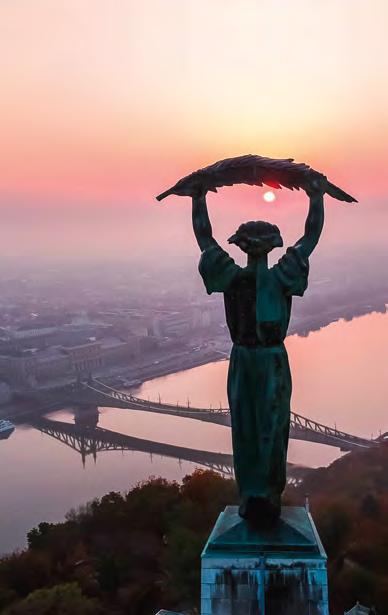
Viaggio
un’altra
scoperta
TITOLO VOLUME
Between 2004 and 2013, eleven Central and Eastern European countries, once part of the former Soviet bloc, joined the European Union. They all feature troubled histories and shifting borders, and for centuries lived in the shadow of an assortment of empires: Habsburg, Ottoman, Russian and then Soviet, German and even French. Their past makes them a tormented crossroads, boasting cultural depth but also encumbered by ethno-religious conflicts. Today, after the end of the Soviet Union, they are experiencing a feeling of national awakening and, in some cases, nationalistic impulses. These countries have benefited from enlargement and economic liberalization, but also grapple with a host of demographic and social problems; in some of them, the rule of law itself has been thrown into doubt. They have joined the EU but sometimes seem more in tune with NATO, to which they also belong. This is the setting for the author’s journey through the stories, places, characters and monuments of another Europe.
series «Intersezioni»
pp. 250
ISBN 9788815388711
publication April 2024
Beda Romano is a news correspondent in Brussels for the «Il Sole 24 Ore» financial newspaper, for which he reports about EU and NATO affairs; he also lectures at the Paris Institute of Political Studies (SciencesPo) and the Bocconi University in Milan.

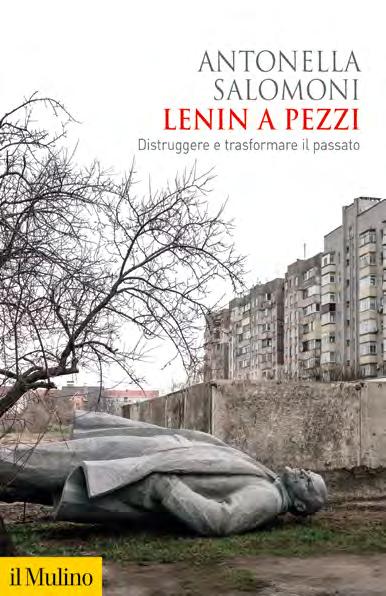
series «Biblioteca storica»
pp. 300
ISBN 9788815388094
publication January 2024
In the age of the Soviet Union, the revolutionary leader Vladimir Lenin watched over the citizens of communist countries through the eyes of thousands upon thousands of stone and bronze statues. What happened to this well-known image after the fall of the Soviet Union in 1989? The practice of pulling Lenin down off his pedestal has occurred in all post-Soviet societies. In Ukraine, the phenomenon has been referred to as «Leninopad», the fall of Lenin – the largest popular movement against statues before the recent protests in Great Britain and the United States. A century after his death, the author documents Lenin’s rise and fall through the likenesses of him that were erected, respected and then removed, vandalised and, in some cases, reinterpreted. This book helps us understand the complexity of the contemporary world and see what happens to people and things when history seems to be over, yet continues and changes direction.
Antonella Salomoni teaches Contemporary History at the University of Calabria and History of the Shoah and Genocides at the University of Bologna.


series «Intersezioni»
pp. 250
ISBN 9788815388032
publication February 2024
Travelling across our planet and, in recent decades, even beyond it is one of the foundational experiences underlying our species’ evolution. What we call travel has continuously changed throughout the ages: migrations, explorations, crossings – from humanity’s initial steps out of Africa to space tourism, from Herodotus to tour operators. This book’s author – a scholar and a long-time traveller – leads readers on a whirlwind tour featuring real and fantastic journeys, pilgrimage treks, mercantile enterprises, holidays, pedestrian tours, and exotic fads. From the North Pole to Cape Horn, from the Sahara to the Himalayas, the author tells the stories of men and women who, by setting out on a journey, changed their lives and sometimes the world’s destiny. This compelling read will put us in touch with our nature as travellers, encouraging us to thrust our imagination a little further, mingle with the world, and conquer new frontiers.
Franco Brevini teaches Italian Literature at the University of Bergamo and writes for the Italian newspaper «Corriere della Sera».

pianeta e un’altra tradizionale?

Il destino dell’Occidente

series «Faustiana» in «Intersezioni»
pp. 200
ISBN 9788815388728
publication March 2024
Il destino dell’Occidente
A cura di Aldo Schiavone
L’Occidente ha riempito il mondo con la sua economia, la sua tecnica, i suoi stili di vita. Eppure si rivela drammaticamente incompiuto: una costruzione che ha del grandioso, ma a cui manca qualcosa di decisivo. E il ripresentarsi della guerra in Europa non ha fatto che accrescere questa impressione. Quale sarà il suo futuro? È possibile che il momento del suo successo coincida con quello della sua crisi definitiva? O piuttosto siamo di fronte a un’altra sfida nel suo turbinoso cammino? Sei libri legati da un unico filo per tentare di anticipare l’avvenire. Sei nodi in cui sembra impressa la direzione del cammino che ci aspetta: la morfologia dell’Occidente e i tratti della sua mondializzazione; la geopolitica e l’avvenire del modello dello Stato e della Nazione; la potenza del tragico e del negativo nella
Once upon a time, there was sex – an obvious characteristic that branched off into female and male ways of being in the world. But genetics does not explain everything. Today we have a term to describe how, in any society, human beings experience their sexed bodies. How do we learn to become womanly or manly? How do we accept or reject the sex we are assigned at birth? And so gender comes into play. Indeed, that’s when genders come into play. This word helps us express attitudes, roles, and identities but also reveals disparities in morals and social representations. This book is a long journey from the recognition of the universal rights in Western societies to the appreciation of gender as an attributed, transformable and transferable difference. Perhaps – in the name of freedom, equality, and happiness – this journey will fundamentally alter the very nature of our species.

Sabatini
UN

UN
Decano della linguistica italiana, presidente onorario della Crusca e studioso tra i più noti e autorevoli, Francesco Sabatini è conosciuto e apprezzato anche dal grande pubblico grazie alla sua attività di sapiente e amabile divulgatore, oltre che di maestro esemplare di generazioni di studenti e insegnanti. Nella conversazione con Cristiana De Santis, Sabatini ripercorre le tappe di una vita straordinaria, densa di incontri, scoperte, viaggi, progetti. Prende così forma un racconto affabile della storia della nostra lingua, dai primi documenti delle origini all’italiano dell’«uso medio» e ai dibattiti recenti sulla lingua che cambia: le questioni di genere, la parola razza, gli anglismi. Un ritratto umano che intreccia più di un secolo di storia culturale del nostro paese, trasmettendo a chi legge l’entusiasmo
Paolo Matthiae’s name is inextricably linked to the major archaeological expedition – comprising a succession of uninterrupted campaigns he directed between 1964 and 2010 – that led to the discovery of the ancient city of Ebla in Syria. Gazing into the past, the renowned archaeologist unravels the memories accumulated during his exceptional life and research experience, amidst extraordinary gratifications, bitter difficulties, significant rewards, and unpredictable disappointments. This memoir allows readers to share the vibrant emotions associated with his finds, the sorrowful regret for the academic and political tensions underlying his discoveries, and the courage with which the scholar was able to face and overcome the many problems that arose in areas marked by endless conflicts.
pp. 190
ISBN 9788815389411
publication June 2024
Paolo Matthiae is professor emeritus at the Sapienza University in Rome as well as a member of Italy’s Accademia Nazionale dei Lincei and several international academies.



Siamo
The sixth book of the Iliad is the song of Glaucus and Diomedes, two enemies ready to take up arms but also lay them down for the sake of the ancient bond of hospitality. It is the song of Hector and Andromache, entwined in earnest conjugal sentiment. And it is also the song of first times. In fact, for the first time in Western tradition, the fragility of human life is compared to falling leaves. For the first time, melancholy engulfs the soul of a man: Hector, the greatest of Trojan warriors. For the first time, romantic love breaks through and overcomes the strict code of heroes. For the first time the hero – Hector – embraces his son Astyanax, knowing that he is perhaps going to die. And it is again in this song that Andromache utters the first and most beautiful declaration of love: «You to me are father, mother, brother, and dear husband». This book explores a host of values, feats, words and passions that can still arouse contemporary readers’ admiration and awe.
series «Intersezioni»
pp. 160
ISBN 9788815389251
publication June 2024
Silvia Romani teaches Mythology and Religions of the Classic World at the University of Milan.

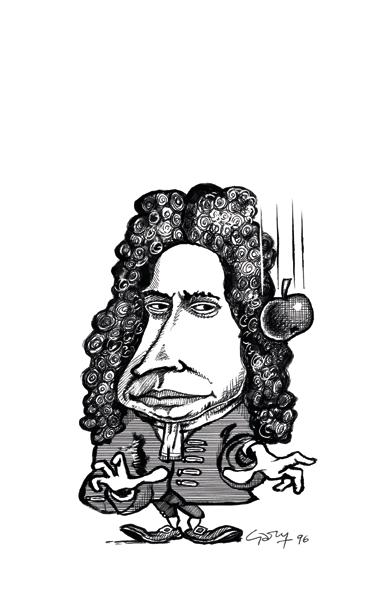
Andrea Bernardoni Marco Segala
Dal Rinascimento al XX secolo
The idea that a scientific thesis or a law of nature has a history is by no means self-evident. Looking at the history of science means asking unexpected and often overlooked questions: «How was life defined before 1953, when DNA was discovered?»; «How was water defined before Lavoisier broke it down into hydrogen and oxygen in 1783?» Throughout its evolution, science has dealt with facts, objects, theories, and principles that have been forgotten or are now considered erroneous; without such missteps, much of today’s knowledge would not have had a chance to grow and take hold. Scientific enterprise itself has been repeatedly redefined over the past four centuries, and indeed the term «scientist» was introduced only in 1833. This book explores the often meandering and failure-ridden paths that have helped shape our current knowledge of the world and describes the making of scientific knowledge over the previous five centuries.
series «Le vie della civiltà»
pp. 400
ISBN 9788815389329
publication May 2024
Andrea Bernardoni teaches History of Science at the University of L’Aquila and works at the Galileo Museum’s History of Science Institute in Florence.
Marco Segala teaches History of Philosophy at the University of L’Aquila.


series «Contemporanea»
pp. 260
ISBN 9788815388513
publication March 2024
After crossing the sea, there is the life to come, but in the meantime there is only the wait. What happens in a place where, as everyone says, nothing happens? It all goes on inside a former motel in an urban suburb, representing thousands of similar reception and confinement venues for immigrants. The stories of the people who live in these fifteen rooms unfold: from everyday life there emerges a web of those transient inhabitants’ memories, habits, tastes, fears, hopes and aspirations. They are almost all young men in their twenties, Black, African, asylum seekers, survivors of so-called «journeys of desperation», always waiting to find out if they will be allowed to live in the country where they have lingered for years. Biding their time, they sleep, cook, play, pray, argue, and incessantly try to prove that they deserve the rights they enjoy. Based on patient ethnographic work, the author describes the everyday life of migrants in their own words, reflecting desires, frustration, dreams, nightmares, presences, and absences.

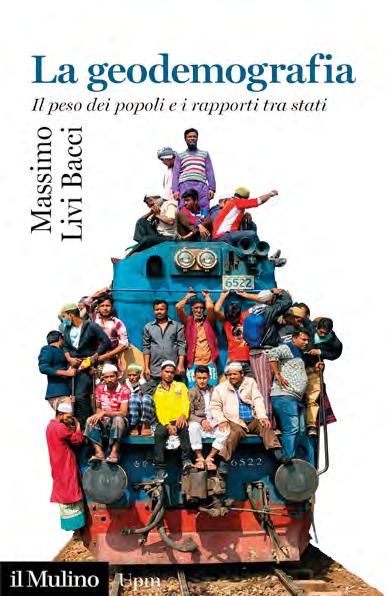
pp. 160
ISBN 9788815388551
publication March 2024
The ongoing decline of Europe’s population, the explosion of Africa’s, major changes in migratory flows, significant variation of reproduction levels across countries and ethnic groups, and the dizzying growth of large urban aggregates have all appeared over the last hundred years. They modify and upset relations between states and regions of the world and influence political choices, with variable and even unpredictable force and speed. But geodemography, a wide-ranging and innovative perspective, can help understand these trends. Using a broad repertoire of exemplary cases drawn from recent world history, this book illustrates this novel approach, proving that it is a valuable tool for learning more about relations among countries and their future.
Massimo Livi Bacci is professor emeritus at the University of Florence.


series «Contemporanea»
pp. 160
ISBN 9788815387998
publication January 2024
The world population has grown from 1 to 8 billion people in about a century. Human life expectancy reached 72 years in 2019, 9 more than 30 years earlier. We are many; we live longer; we live better. Yet our tumultuous economic growth is now crashing against its own contradictions – climate change, migration flows, demographic imbalances – thus threatening the planet’s very existence and raising critical sustainability issues. More technology and more efficiency are not the answer, however: instead, we need to bridge a cultural gap and increase our awareness that all living beings are interrelated. Science says so, and religions have always said so: only by establishing meaningful relationships with others do we achieve our authentic selves and enjoy true freedom – not in an extractive or predatory way but rather in a transitive and generative manner. This logic presides over personal and collective human life and can lead us to a free, fair, sustainable society.
Chiara Giaccardi teaches Sociology and Media Anthropology at the Catholic University of the Sacred Heart in Milan and is chief editor of the academic journal «Comunicazioni Sociali».
Mauro Magatti teaches Sociology at the Catholic University of the Sacred Heart in Milan and is a columnist for the Italian newspaper «Corriere della Sera».


series «Intersezioni»
pp. 200
ISBN 9788815388704
publication March 2024
Who are today’s creative talents, and where do they come from? This book provides a detailed genealogy: from Faust to Kandinsky, via Coco Chanel, Pablo Picasso and Andy Warhol, to Silicon Valley technologists and innovators. In the space of a few years, we have gone from creative individuals, who produce unique works of art and ingenuity and answer only to themselves, to the creative class, which fosters innovation and designs products for the markets on which we all depend. Creative people are not a privileged category as much as the bearers of a spirit that generates universal effects and offers hope to the world. However, today’s creative souls lack structure and are oblivious to the long-standing tradition to which they nevertheless belong. How can we prevent this vast outburst of ingenuity from turning into banality, mass production or – worse still – a creative vacuum?
Paolo Perulli, an economic sociologist, formerly taught at the Universities of Eastern Piedmont, Venice, Paris, Lugano and the Massachusetts Institute of Technology.

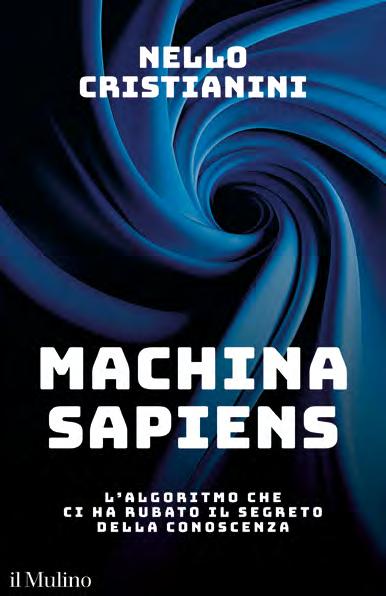
Can machines think? This troubling question, posed by Alan Turing in 1950, has perhaps been answered: today we can converse with a computer without being able to distinguish it from a human being. Machines can pass university exams and programme other computers. ChatGPT, Bard and other «language models» have proved proficient at performing tasks far beyond their creators’ initial expectations, and we still do not know why. Trained simply to predict missing words in a text, such models have gained an understanding of the world and language that makes them capable of reasoning, planning, solving problems, as well as conversing almost flawlessly. Is this the secret of knowledge, and is it now in the hands of our creations? Perhaps we are no longer alone. And as we try to figure out how to share these powers with the «aliens» who now work at our side, we can wonder what else they may learn tomorrow. Are we approaching a critical threshold beyond which machines will attain superhuman performance? After the success of «The Shortcut», Nello Cristianini has authored another brilliant book – written like a gripping thriller – explaining the ideas behind a technology destined to change the world. If our worst terror has always stemmed from fear of the unknown, the cure, since time immemorial, is knowledge.
series «Contemporanea»
pp. 160
ISBN 9788815384461
publication March 2024
Nello Cristianini teaches Artificial Intelligence at the University of Bath and is the author of «The Shortcut: Why Intelligent Machines Do Not Think Like Us» (CRC Press, 2023) and other works dealing with artificial intelligence, machine learning, natural language processing, and the social impact of AI.


series «Intersezioni»
pp. 220
ISBN 9788815388018
publication February 2024
This book brings to light nine stories that took place before history began to be recorded. Each story is told from the standpoint of our forebears from the distant past and with the help of a palaeoanthropologist who knows them well and has helped others appreciate them. The author imagines aliens landing on Earth to assess whether living beings have attained a sufficient degree of self-awareness and cognizance of their origins – in short, whether they genuinely understand evolution. The answers to their questions lie in nine manuscripts discovered by the visitors and whose protagonists are: Lucy, the world’s most famous specimen of Australopithecus; the Neanderthals of Circeo; the Altamura Man; Ötzi, the iceman from the Alps; and many other ancestors of ours. With an effortless narrative style, the author explains, on the one hand, how science is able to reconstruct and interpret deep time history and, on the other, how it improves our comprehension of our identity and place in nature. Only this awareness can lead us to overcome the challenges that face humanity and which stem from our own cumbersome presence on Earth.
Giorgio Manzi teaches Anthropology at the Sapienza University in Rome, is a member of the Italian Accademia dei Lincei, and is a former general secretary of the Italian Institute of Human Palaeontology.


Alla
Insects account for the overwhelming majority of small living things. Commonly perceived as annoying, treacherous, and unworthy of human interest, insects comprise almost the entirety of the animal world. Sometimes hidden, sometimes glaringly noticeable, and often the cause of irrational fears, insects are indispensable to our lives and environmental biodiversity. In fact, we are dealing with one of the planet’s oldest and most enduring life forms. This book leads its readers on a journey full of discoveries, beginning on a summer night – when a mosquito buzzing in our ear disturbs our sleep – and winding through meadows, cultivated fields, exotic lands and familiar surroundings. We will finally understand how and why insects are the best flatmates humans could possibly have.
series «Intersezioni»
pp. 230 with illustrations
ISBN 9788815389237
publication May 2024
Maurizio Casiraghi teaches Zoology and Evolution at Bicocca University in Milan.


TITOLO VOLUME
A trillion species of microorganisms support all life on Earth and make the planet habitable. In fact, the number of estimated species is growing due to recent technological advances identifying an immense variety of species. Without microbes, we would not have bread, wine, beer, nor be able to dispose of waste. Above all, we simply would not exist. Microbes inhabit not only our intestines but also our immune systems, which require continuous microbial contact to distinguish friend from foe. When this intimate relationship breaks down, we get sick. A minority of species (about 1,400) cause infections, and we use tools of mass destruction such as antibiotics, disinfectants, and detergents to eliminate them. In doing so, we also destroy harmless and even beneficial microbes, whereas more dangerous species can resist treatment. We need more ecological and targeted solutions against infections to preserve global microbial diversity. We must strike a balance between what we call the Anthropocene and the Microbiocene, an era that began nearly four billion years ago and will endure as long as there is life on Earth.
series «Intersezioni»
pp. 220
ISBN 9788815389220
publication May 2024
Duccio Cavalieri teaches Microbiology at the University of Florence and is an expert in genome sequencing techniques.
Rino Rappuoli is a microbiologist and the chief scientific officer at the Biotecnopolo of Siena Foundation.
Lisa Vozza is a writer of popular science and the chief scientific officer at the AIRC Foundation for Cancer Research.

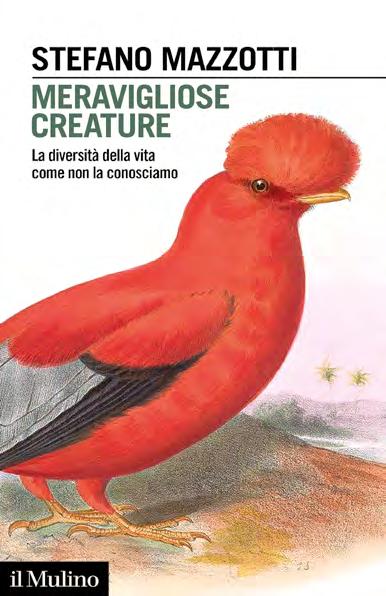
series «Intersezioni»
pp. 270
ISBN 9788815388025
publication January 2024
It is time to fall in love again with our planet, to rediscover its awe-inspiring and inexhaustible variety of life. The fieldwork undertaken by the author allows him to describe the discovery of new species of animals and plants in places of spectacular richness: Papua New Guinea, Borneo, the Himalayas, the Mekong River basin, the islands of Sri Lanka and Madagascar, and the mountains of Tanzania. On page after page, readers encounter an infinite collection of species – the overall number of which remains a mystery – with which we coexist and which we are in danger of driving to extinction before we even get to know anything about them. The author also provides a wide array of reasons to preserve this diversity, which is fundamental to our very survival, so that our descendants may continue to enjoy the wondrous spectacle of life.
Stefano Mazzotti, a zoologist, teaches Biology Teaching and Evolutionary Biology at the University of Ferrara, heads that city’s Natural History Museum, and has conducted zoological explorations in South America.

A series of 12 books, edited by Umberto Bottazzini This new book series has an informative slant and is aimed at educated but non-specialist readers. «Numbers» are not just for counting; in fact, they have played an exceptionally significant role in the history of Western thought. Each book focuses on a specific number and each number provides an opportunity to explore cultural topics and issues with an original perspective. Every contribution to the series offers stories and suggestions drawn from a wide variety of contexts, such as philosophy, theology, literature and music.
In the same series:
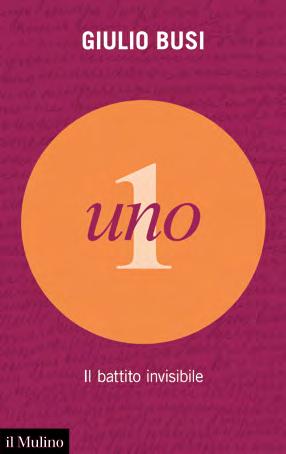
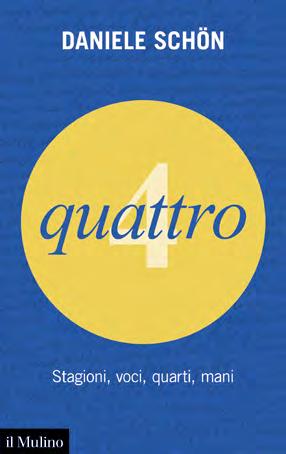
Giulio Busi
Gianfranco Ravasi
Three Divine Arithmetic
Daniele Schön
Four Seasons, Voices, Quarters, Hands

Marco Antonio Bazzocchi
Hundred A Tower of Tales
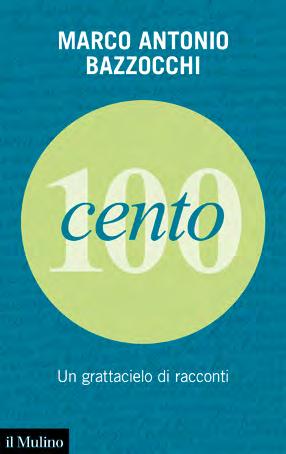


pp. 160
ISBN 9788815388780
publication March 2024
Raphael Ebgi teaches History of Philosophy at the Vita-Salute San Raffaele University in Milan.
Marco Malvaldi
The number 12 underpins our ability to count, classify, track the passage of time, and even make music without offending sensitive ears. Twelve is a multipurpose number with many, occasionally conflicting meanings. To an ordinary person, the word «dozen» sounds imprecise, and even in mathematics, the number 12 evokes contradictions; for number theorists, 12 is both sublime and evil. If you are curious about how a number can be so versatile as to be almost schizophrenic, perhaps this book is precisely what you want.
ISBN 9788815389268
publication May 2024
Marco Malvaldi is a chemist and the author of the «Bar Lume» mystery novels series.

Purini
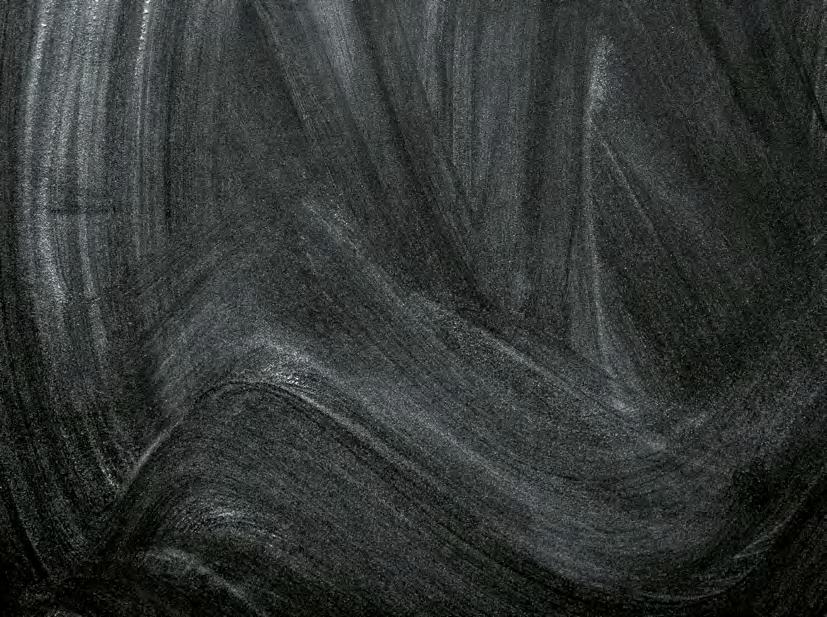
Franco Purini
con la collaborazione di PINO DONGHI
Semplici, eleganti, sintetiche, ma anche complesse, misteriose. Ognuna con una sua storia, che questa collana vuole raccontare. La storia del prima, di chi le ha scoperte, di cosa cercava. Ma anche la storia del dopo, dell’uso che ne abbiamo fatto, dei mondi che hanno aperto, dei problemi che ci hanno permesso di risolvere. Dietro queste stringhe di numeri e simboli si celano vicende personali, sfide intellettuali, rivoluzioni del pensiero radicali e svolte - talora drammatiche - nella storia dell’umanità.
From the remotest age to the present day, human beings have always sought to identify the laws that organize the universe. One law stands out among the rest: the «golden ratio», a perfect dimension that does not derive from a magical calculation but refers to superior, unattainable contents and knowledge. In this book, one of Italy’s most prominent architects explores the «divine proportion», introducing us to its enduring allure and relevance. Pythagoras, Fibonacci, Palladio, Le Corbusier and others help readers get acquainted with an esoteric and enigmatic formula, which governs the order underlying what we see.
series «Voci»
pp. 170
ISBN 9788815388797
publication March 2024
Franco Purini teaches Architectural Planning at the Sapienza University in Rome and the Polytechnic University in Milan. One of his major projects is the Eurosky Tower, Rome’s tallest building.


series «Contemporanea»
pp. 180
ISBN 9788815388001
publication February 2024
Over the last thirty years, Silvio Berlusconi shaped Italian politics to an unprecedented degree. Several power sources – economics and finance, mass media, government – have been concentrated in his hands, giving rise to a phenomenon without parallel in modern democracies. What conditions made the sudden irruption of the «Cavaliere» possible, and what determined his downfall, well before his death? The author expands on some of his reflections developed in a 2014 book and identifies the features of Italian society that, to a certain degree, struggled to find representation after traditional parties’ collapse in the aftermath of the 1990s’ «Clean Hands» judicial investigations into political corruption. The book provides an overview of the development of Forza Italia, the party Berlusconi founded, by examining its relations with allies and clashes with the opposition, and then describes Berlusconi’s fading appeal in a profoundly changed society, where television no longer plays a key role and new actors have taken up his «anti-politics» legacy.

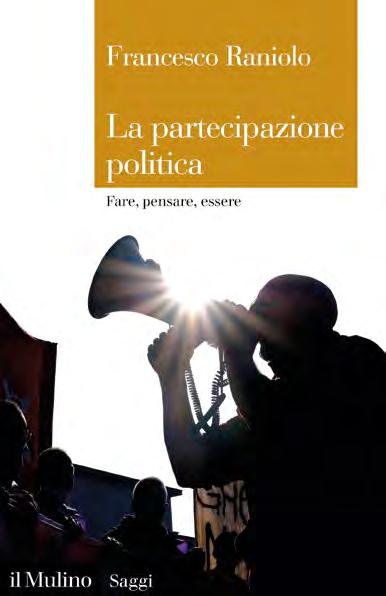
series «Saggi»
pp. 220
ISBN 9788815388155
publication February 2024
The 21st century has generated potentially fatal challenges for representative democracies: fundamentalism, mass migration, the Great Recession, a pandemic, the crisis of the international order, the Russian invasion of Ukraine, climate warming, and digitization. Taking this scenario of radical uncertainty as a starting point, the author sheds light on the ability of women and men to influence their future. This capability entails «being part», «feeling part», and «taking part»: in other words, participating in politics. The book provides an original analysis of these dimensions, the paradoxes they contain, their transformations and their specific indicators: power, thought, (non-)voting, lobbying, partisanship, protests, communication, and innovation. The result is a vision of participation that is plural and unconventional, but which preserves the idea that – as in the past – participation means acting with others and for their benefit.
Francesco Raniolo teaches Political Science at the University of Calabria and is a member of the steering committee of the Italian Political Science Society.


Fausto Caruana
Elisabetta Palagi
Laughter – a spontaneous, uncontrolled behaviour everyone experiences – is a basic feature of our lives. However, although laughing is a commonplace activity, we would find it difficult to explain why we laugh. This book’s authors, a neuroscientist and an ethologist, take us into the world of laughter and explore its origins. We will discover that, contrary to common sense, laughter is not an exclusively human behaviour. We will understand what happens in our brains when we laugh. We will see how laughter is a complex behaviour and that there are many types of laughter with different meanings. Studied by philosophers, linguists, psychologists and ethologists, laughter is examined here from the novel perspective of evolutionary theory, focusing on the origins and functions of an engaging, fascinating and enjoyable activity.
series «Saggi»
pp. 270
ISBN 9788815389367
publication August 2024
Fausto Caruana is a member of the Italian National Research Council’s Neuroscience Institute and teaches Neuroscience and Language at the University of Parma.
Elisabetta Palagi teaches Ethology at the University of Pisa. In 2020 she was awarded the Animal Behaviour Society Fellowship Award for her studies on animal behaviour.


Un
Achieving a good work-life balance can help us express better performance levels, improve our health, and cultivate hobbies and passions that are critical to our well-being. Over the years, work-life balance has been managed by acknowledging an underlying trade-off: in order to achieve positions of excellence in one’s job or set up a healthy family, one has to choose between one’s career or one’s private life. Today, there is a different prevailing attitude: we desire, whatever the cost, to pursue both goals. Based on research and studies conducted over the past four decades, this book identifies roles and strategies that can be adopted by the four leading players in the reconciliation process: individuals, businesses, bosses and the society in which we live. Taking into account managerial concerns, the author provides entertaining examples and valuable pointers for attaining an excellent work-life balance, eliminating the guilt we experience when we take time off from work and promoting conditions that enable the greatest number of people to strike a new balance.
series «Guide»
pp. 250
ISBN 9788815389428
publication May 2024
Marcello Russo teaches Business Organization at the University of Bologna and heads the Global Master’s in Business Administration programme at the Bologna Business School.


Luoghi non comuni del videogioco
Video games feed a constantly growing market and feature characters who cross the boundaries of gaming and colonize movies and video platforms. All over the world, the number of people playing video games is increasing, as they manage to interact despite living in geographically and culturally distant places. Video games do not look to the past, as many seem to believe; they are crucial elements of contemporary society and everyday life. Those who do not play video games typically do not know much about them, nor understand them, and especially ignore their impact on young people’s and others’ lives. This book provides an opportunity to take stock of what video gaming means today and refute stereotypes and inaccurate beliefs. The author discusses the size and composition of the market for video games, their educational uses, the metaverse, and the future frontiers of gaming.
series «Farsi un’idea»
pp. 160
ISBN 9788815388674
publication October 2024
Francesco Toniolo teaches at the Catholic University of the Sacred Heart and the New Academy of Fine Arts (NABA), both in Milan.

Maria Pontillo & Stefano Vicari

Across the world, millions of youths aged between 11 and 17 engage in the compulsive, unrestrained use of social and streaming platforms, and even more, primarily boys, are at risk of video game addiction. Many teenagers, sometimes barely older than children, spend their days in front of a screen or with a phone constantly in their hands. They do not ask for help, and only with great anxiety do they manage to live outside their invisible circle of relationships. Why do they fear disconnection so much? What are they afraid of losing? Using true stories, the authors provide an account of this increasingly common disorder: the ways in which it is expressed, the individual and environmental factors that facilitate addiction, the warning signs, and strategies for dealing with it.
pp. 160
ISBN 9788815388650
publication June 2024
Maria Pontillo is a cognitive and behavioural psychotherapist and a psychology manager at the Childhood and Adolescence Neuropsychiatry Division of the Bambino Gesù Paediatric Hospital in Rome.
Stefano Vicari teaches Child Neuropsychiatry at the Catholic University of the Sacred Heart in Rome and heads the Childhood and Adolescence Neuropsychiatry Division of the Bambino Gesù Paediatric Hospital in Rome.


Workaholism
Is your job the most important activity in your life? Does your work feature mood swings that range from excitement to sadness, to serenity? Do you feel compelled to gradually and progressively increase the amount of time spent on work activities? When you cannot work, do you entertain negative thoughts? Do you blame yourself for being unable to «switch off» from your job? If so, you have probably developed an addiction to work. Some personality and environmental characteristics contribute to work addiction, but organizational climates and novel technologies also play a role in developing and maintaining workaholism. This book provides an overview of this increasingly common addiction and provides guidance to both workers and organizations seeking to prevent and limit the phenomenon.
series «Farsi un’idea»
pp. 160
ISBN 9788815388667
publication September 2024
Cristian Balducci teaches Work and Organizational Psychology at the University of Bologna.
Paola Spagnoli teaches Work and Organizational Psychology at Luigi Vanvitelli University of Campania in Caserta.


series «Farsi un’idea»
pp. 160
ISBN 9788815388636
publication March 2024
Is it possible for a digital transition to be environmentally friendly? Yes, but we need to be aware of the environmental costs associated with the digital technologies (smartphones, PCs, home sensors) that permeate our daily lives and especially how such technologies work: telecommunications infrastructure and data centres. We are so accustomed to these digital tools that we are blind to their impact on greenhouse gas emissions, electricity consumption, non-renewable resource exploitation, and waste production. This impact often remains unseen because digital businesses have never bothered to avoid or reduce it. This book is for readers who believe that everything involving the Internet and an apparently immaterial world is intrinsically ecological, who care about both the technological and the environmental future of our planet but are also aware that each of these two futures requires the other.
Giovanna Sissa teaches Interdisciplinary Dimension of ICT Environmental Impact at the Doctoral School in Science and Technology for Electronic and Telecommunications Engineering at the University of Genova.

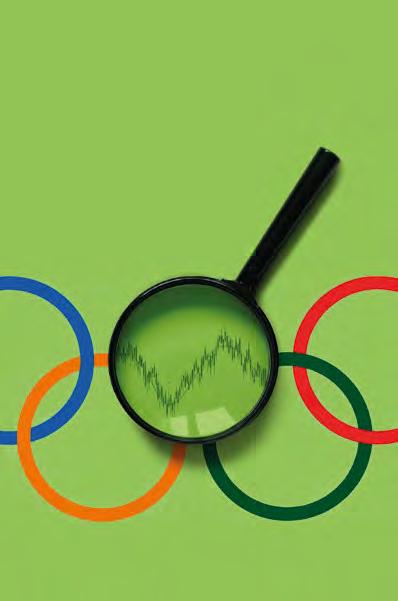
If it has ever been true that the important thing is not winning but taking part, Baron Pierre de Coubertin’s famous saying is poorly suited for the reality of the contemporary Olympics, in which – by and large – silver is not won and gold is lost. For athletes, the Olympic Games require spending thousands of hours training, perhaps even risking their health. For cities, hosting an Olympiad entails spending colossal sums to build infrastructure and facilities that do not always find any subsequent use. For many businesses, the Olympics mean investing ever-increasing amounts of money to sponsor or broadcast competitions often held in countries that do not respect fundamental human rights. Yet the fascination with symbolic gold persists, as if the gold were real, as does the admiration for athletes capable of setting extraordinary records and conveying the thrill of victory and the agony of defeat. This book helps readers understand what the Olympics are actually about.
series «Farsi un’idea»
pp. 160
ISBN 9788815388643
publication March 2024
Andrea Goldstein works in an international organization and is a founding partner of the M&M Minima Moralia Foundation in Rome.


History
pp. 256
ISBN 9788815383334
publication year 2023
None of the great challenges facing us today – the protection of the environment, the rational use of energy sources, the health of our species and, indeed, of all living things – can now be addressed by a single country, no matter how powerful it may be. Awareness of this fact entails the need to think about something that had previously seemed an utter utopia: the prospect of a planetary government stretching well beyond the borders of nation-states, even when the latter tend to take on the form of empires. At the same time, we increasingly encounter expressions such as «international justice», «supra-territoriality» and «transnational government», despite the horrors of the war of aggression occurring at Europe’s doorstep. We are growing accustomed to the idea of a global civil society, something like an authentic planetary civilisation. This lucid, realistic and visionary book, written by a major historian, projects readers into an imaginable future – not only for the West, but for an entire world finally at peace with itself.
Anthony Pagden teaches History and Political Science at the University of California, Los Angeles (UCLA). World English and Spanish rights sold.


pp. 280
ISBN 9788815387578
publication year 2023
Circe was a «dread goddess with human speech», as she is described in the Odyssey. Pythia was the high oracle at the sanctuary of Delphi and uttered prophecies by channelling Apollo. Ever since ancient times, women have been attributed magical and sacral powers. In pre-Christian Celtic Europe, the priestesses of Carnac attended to the holy bonfire at the god Beltane’s sun festival. Druidic priestesses were believed to exert powers and recite chants capable of churning the seas, curing diseases and predicting the future. In the Abrahamic religions, in which priesthood is reserved to males, women nevertheless assume an important role that was strengthened by great mystics and saints, such as Hildegard of Bingen and Teresa of Ávila, as well as lesser-known but equally fascinating figures such as Christina Mirabilis (tradition has it that she died and came back to life), and Madame de Montespan (Louis XIV’s enigmatic chief mistress). This unusual and powerful book illustrates a gallery of extraordinary women, including some from non-European contexts: Central Asian shamanesses, American curanderas and medicine women, Congolese nganga marindas, and the mythical Hindu apsaras and dākinīs.
Franco Cardini is professor emeritus of Medieval History.
Marina Montesano teaches Medieval History at the University of Messina and is the author of «Classical Culture and Witchcraft in Medieval and Renaissance Italy» (Palgrave, 2018).


History
pp. 250
ISBN 9788815386724
publication year 2023
This book is the flrst environmental history of the European continent. Can we achieve decarbonised and circular economies (in a word: sustainability) without understanding the natural and environmental history of where we live? Can we implement an ecological transition without a deep knowledge of ecology and ecological history? Even deflning Europe is a slippery business. Its diversity, evolutionary history and shifting boundaries contribute to the continent’s fluctuating reality. Yet, paradoxically, Europe is instantly recognisable. With its characteristic human landscapes, formerly grand forests, Mediterranean coasts and Alpine panoramas, we all know it when we see it. This book does not want to be a chronological account of past natural events, but rather sheds light on Europe’s peculiar phenomena, scenarios, and emblematic occurrences, in a way that describes the relationship between humanity and the environment. The author shows how the transformations in Europe have helped bring the planet Earth into the current Anthropocene epoch.
Emilio Padoa-Schioppa teaches Landscape Ecology, Biology and Biology Teaching at the Bicocca University in Milan, where he helped found the Landscape Ecology Research Unit.


History
pp. 350
ISBN 9788815387639
publication year 2023
Cliffs, atolls, shreds of land emerging from the sea, vast agglomerations, veritable continents: the history of islands and their discovery has energized travellers and fascinated scholars throughout the ages. Christopher Columbus claims to have encountered 1,400 of them, according to a letter from Pope Alexander VI, or even 1,700, according to a message sent to the Iberian royal family. Such numbers are far lower than those reported in the Indian Ocean by Marco Polo (as many as 12,700) or Guillaume Adam (20,000), a Dominican who lived between the 13th and 14th centuries. This book tells the adventurous and fantastic story of the search for islands during the Middle Ages, an account encompassing a variety of (often devastating) «discoveries» and «conquests», as well as recurring disappointments – all linked to the utopian, unquenched desire to witness the transformation of the substance of dreams into reality.
Antonio Musarra teaches Medieval History at the Sapienza University in Rome.


History
pp. 280
ISBN 9788815382894
publication year 2023
Shortlisted for CNR (National Research Council) award 2024 for the divulgation of science!
All artefacts bear the sign of events that occurred at the time they were created and of the functions they performed within the community. They are fragments of everyday life: traces of religious rituals, economic activities, and people’s relationships with the environment. Like shards of a mirror, such objects reflect an image of what we have been and help us to make sense of the past. Years of work are required to tie together the threads of such distant and unfamiliar worlds. And, in fact, the renowned archaeologist who wrote this book spent over 30 years at the Arslantepe (or Melid) site in Anatolia, where the oldest public building in the world still stands. She accompanies readers on a journey through time (dating back six millennia or more) and space (in Anatolia and throughout the Fertile Crescent) to discover the first human civilizations and the political and social phenomena that still shape our lives. The book offers ten lessons drawn from ancient archaeology to help understand how we got here and what future awaits us.
A member of the Italian Accademia dei Lincei and the British Academy, Marcella Frangipane teaches Prehistoric and Protohistoric Archaeology at the Sapienza University in Rome. For 30 years she directed the excavations at the Arslantepe site in Turkey, recently named a UNESCO World Heritage Site.
French rights sold.


Philosophy
pp. 176
ISBN 9788815387615
publication year 2023
Speak your mind, always. Hypocrisy challenges this rule of authenticity, and for this very reason hypocrisy is judged negatively, as intentional inconsistency between thoughts and words, between belief and behaviour. Does this make the hypocrite a silent saboteur of the moral order? A person who hides in the shadows and erodes the foundations of trust? Without trust there is no society, nor friendship, nor love. But society, friendship and love also require a measure of «virtuous» hypocrisy. If we were always robustly honest in public, it would be a disaster for everyone. What about politics? Here, too, are hypocrisy, inconsistency, and exchange always reprehensible? Or are they the essence of any democracy, any assembly, any meeting? The important thing is to understand when and within what limits hypocrisy can be justified and, above all, what is the opposite of hypocrisy.
Nadia Urbinati teaches Political Theory at Columbia University in New York.
World English, German and Portuguese (Brasil) rights sold.

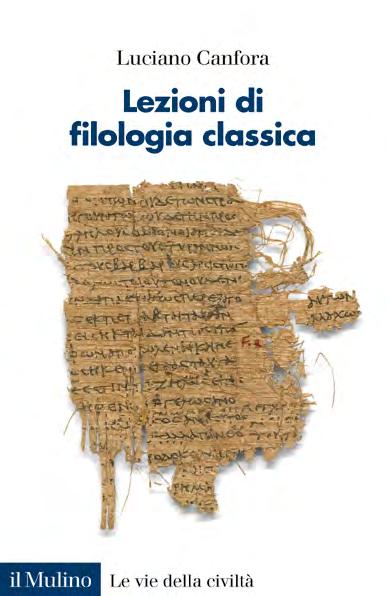
Literary Criticism
pp. 192
ISBN 9788815386731
publication year 2023
Today we read ancient Greek and Latin texts in versions that were assembled at least a millennium after they were written. To what extent do the current versions faithfully reflect the originals, and what changes have the latter undergone? This is a historical question, which however implies to a more strictly operational one: when attempting to publish a new edition of one of those works, what procedures allow us to achieve our goal? This is the stuff of classical philology, a discipline already cultivated in ancient times (at least since the Great Library of Alexandria) and which later matured into the scientific study of the transmission of texts. Using specific and intriguing historical examples, the author puts his philological skills at the service of readers to guide them among this science’s key concepts (such as variant, archetype and stemma), its masters, and its practical methods.
Luciano Canfora is emeritus professor at the University of Bari and editor-in-chief of the academic journal «Quaderni di Storia»; he also writes for the Italian daily newspaper «Corriere della Sera».

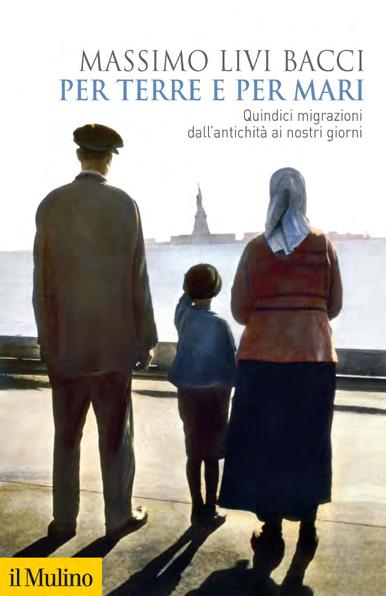
Sociology
pp. 232
ISBN 9788815294999
publication year 2022
All of humanity’s history is marked by periodic movements of people, prompted to migrate by a variety of reasons and circumstances, with results ranging from complete success to utter disaster. The author describes fifteen migrations that affected the Western world: Europe and America. The stories are organized according to the varying degree of individual freedom that determined the choice to move: from the absolute lack of freedom that characterizes forced displacements (as in the Soviet Union during World War II) to the opposite case of «free» travel (as in the case of the great transoceanic migrations during which millions of people crossed the Atlantic Ocean towards the United States, between the 19th and 20th centuries). Moving and changing one’s place of residence, physical environment and homeland is a human prerogative: migration can be used or remain dormant for some time… but its potential is and always will be substantial.
Massimo Livi Bacci is professor emeritus at the University of Florence and a member of Italy’s Accademia dei Lincei.
World English and World Spanish rights sold.

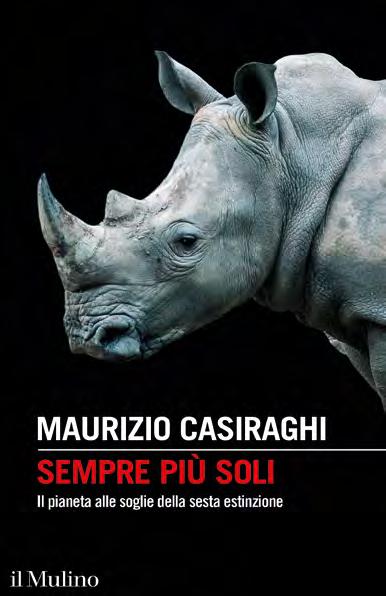
Science
pp. 248
ISBN 9788815383327
publication year 2023
What is the common thread connecting the sad Najin and Fatu (the last two female northern white rhinos), Lonesome George (a solitary giant tortoise), the Tasmanian wolf and the great auk? They are all central characters of what has been defined the «sixth mass extinction». According to current estimates, 99.9% of our planet’s species have already disappeared. Whereas the previous «big five» mass extinctions were caused by great natural disasters, in today’s Anthropocene era it’s humans – the «overbearing species» – who are to blame for withering biodiversity. This responsibility cannot be denied, and this book’s author, a passionate zoologist, does not attempt to do so. With extraordinary narrative ability, he involves readers in poignant and revealing stories and fervid calls to action. It’s up to us to change our attitudes towards the planet and its guests and to ensure that we can continue to inhabit it. A world without pandas is not only less beautiful, but risks being an increasingly less hospitable place for us: we are all connected, and only together can we be saved.
Maurizio Casiraghi teaches Zoology and Evolution at the Bicocca University in Milan.

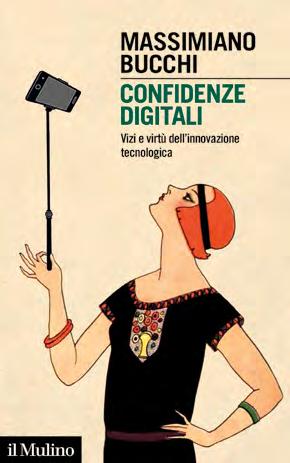
Science
pp. 176
ISBN 9788815298362
publication year 2023
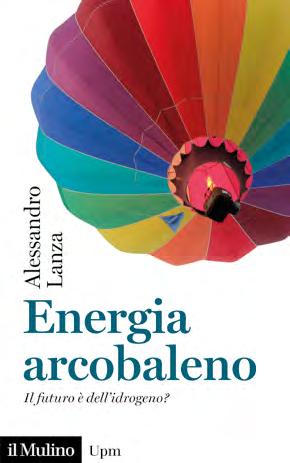
Science
pp. 136
ISBN 9788815383624
publication year 2023
New technologies pervade and shape our everyday gestures, personal relationships and ways of life. We are all accustomed to receiving personal messages from web giants and virtual assistants and often receive stylised kisses and hugs in texts from people we don’t really know all that well. If a friend looks at his smartphone during lunch, we are immediately tempted to do the same. We take advantage of the many tutorials made available on Internet for a range of activities, from repairing sun-blinds to setting up a barbecue or baking bread at home. At the same time, many technologies considered dead or obsolete – such as landline telephones and vinyl records – cyclically make a comeback and again become parts of our lives. Focusing on practical situations and typically unconscious habits, the book lays bare our relationship with technological innovation and the spirit of our time.
Massimiano Bucchi teaches Science, Technology and Society at the University of Trento.
Climate change and the war in Ukraine have conferred special urgency to the issue of «energy transition», an expression that indicates the need for mitigation strategies concerning our civilization’s carbon dioxide emissions. Among these strategies, indeed at their forefront, is hydrogen. Hydrogen is an energy carrier, not an energy source, a molecule that is abundant in nature but only when combined with other atoms. Its production is as varied as the colours of the rainbow: black if extracted from coal, brown from lignite, green from renewable sources, and even turquoise, blue, grey, pink or yellow. What are the differences between these «coloured hydrogens»? How do diverse production methods affect the economic and environmental costs of rainbow energy and therefore its applicability? What are the real prospects for the use of hydrogen in the immediate and more remote future?
Alessandro Lanza heads the ENI Enrico Mattei Foundation and teaches Energy and Environmental Policy at the Guido Carli Free International University of Social Studies (LUISS) and the LUISS Business School in Rome. He was formerly chief economist at ENI, chief executive officer at the ENI Corporate University and principal administrator at the International Energy Agency (Energy and Environment Division).

SOCIETÀ EDITRICE IL MULINO
Strada Maggiore, 37 40125 Bologna
tel. 051256011
www.mulino.it
FOREIGN RIGHTS
Marta Mazzucchelli
marta.mazzucchelli@mulino.it
https://www.mulino.it/foreignrights